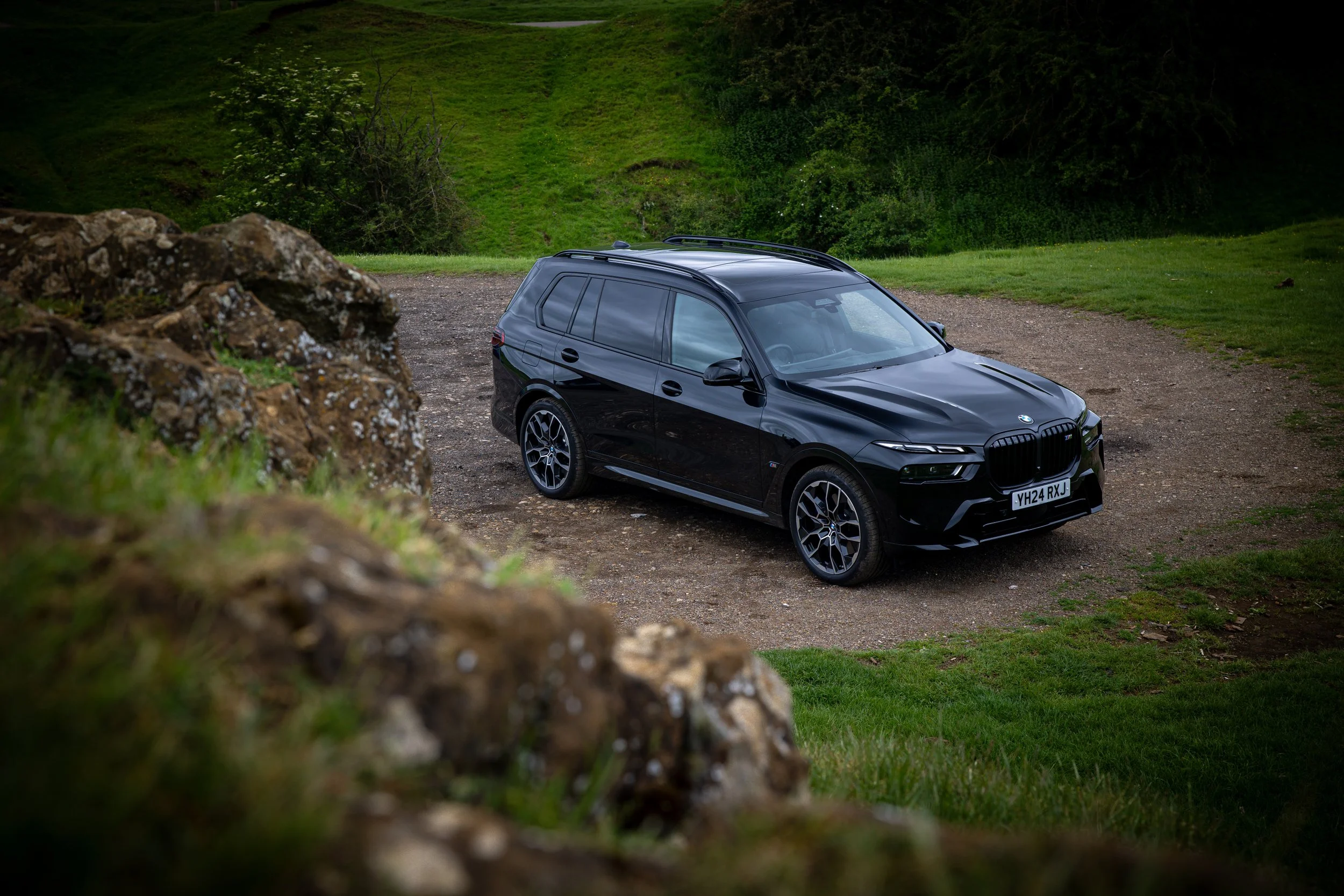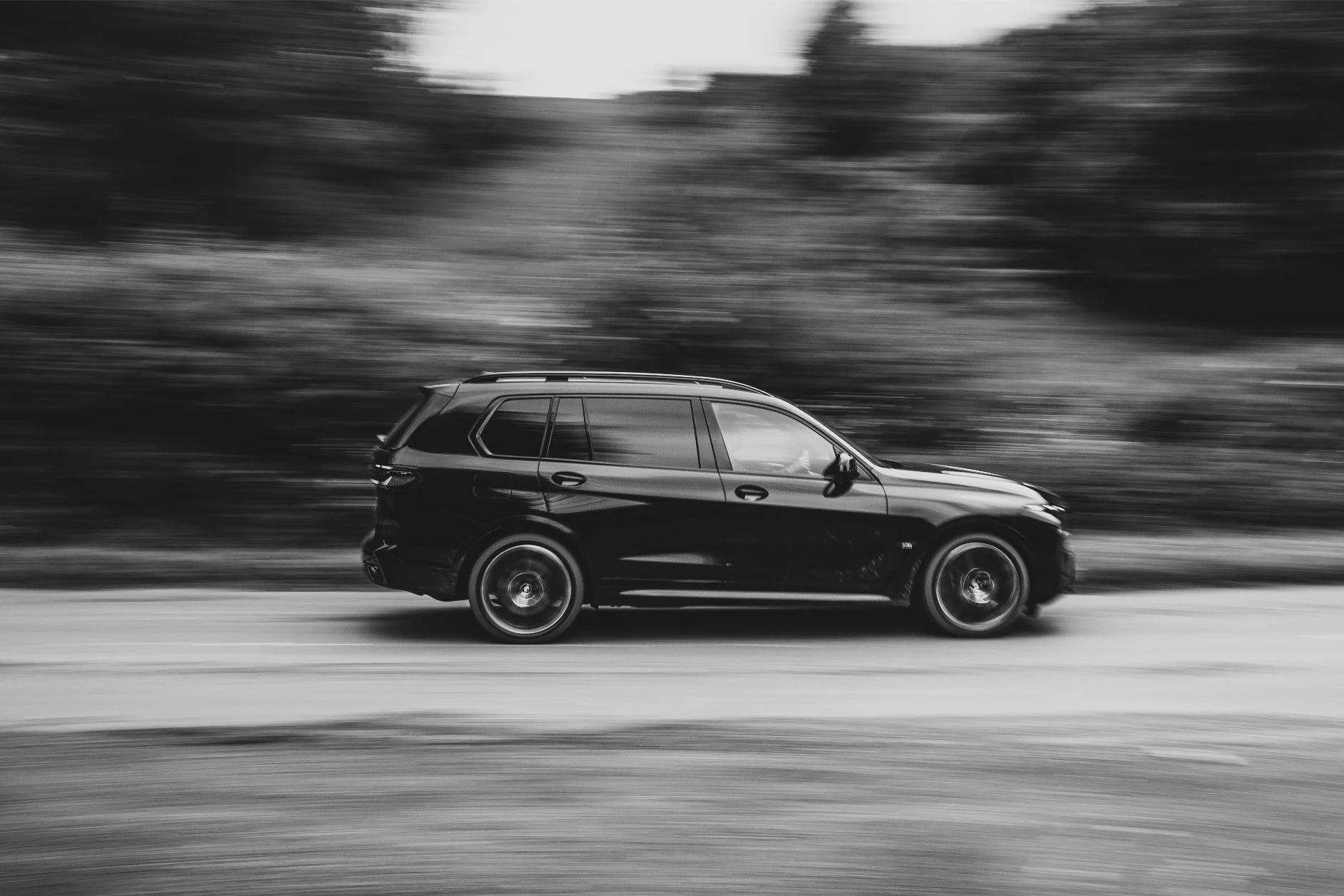BMW X7 M60 - Still better than a Range Rover?
The X7 M60 is BMW's latest big-power luxury SUV, taking on the likes of the Range Rover Autobiography. But the BMW is cheaper, potentially easier to live with, and probably easier to insure than the competition, so should Range Rover be worried?
First Impressions
One of the first cars I reviewed at Driven was the (then) new BMW X7 40d in 2021. Given my generalised hatred for SUVs, I expected to detest the pointlessly oversized, unnecessarily overpowered, and ludicrously expensive BMW 7 series on stilts. After seven days with the car, to my surprise, I was rather smitten. I haloed my review with the line, 'You can keep your Range Rover; I'll opt for the BMW instead.'
The New 2024 X7 M60
The latest X7 I have to test is the new 2024 M60 variant, and by quite some margin, the new car is considerably more expensive, ludicrously more powerful and even more garish in its styling than its predecessor.
Engine and Performance
The X7 M60 is powered by BMW M's 4.4 Litre TwinPower Turbo V8 petrol engine, pushing out 530 hp and 730Nm of torque. The power isn't the only thing to increase, as the previous X7 (40d) I had on test was priced at £89,000 (with options). The X7 M60 I have on test has an on-the-road retail price of £122,245.
Size and Interior
As in the predecessor, the theme for the latest X7 is 'big'. The new model is 5.2 metres long, 2 metres wide, and just over 1.8 metres tall. It also has quite a sizeable weight at 2.6 tonnes. The extensive exterior translates to a spacious interior with four-seat, six-seat, or seven-seat configurations available to potential buyers.
Features and Options
Given that the X7 is righteously in the BMW flagship fleet, the standard features and luxuries are plentiful, but the optional extras are extensive and available as option packages.
Technology Plus Pack
Two package options have been ticked in the M60 I have on test: The Technology Plus Pack, priced at £5,250, includes an upgraded Bowers & Wilkins Audio system and advanced assisted cruise control and safety technology. The assisted cruise control, which features lane assist, brake assist, adaptive cruise control and traffic sign and traffic light recognition technology, is one of the best systems on the market and trickles down into systems found in Rolls-Royce models.
Comfort Plus Pack
The second option package is the Comfort Plus Pack, priced at £3,940. The Comfort Plus pack includes 5-zone airconditioning with adaptive in-built air fresheners, heated and ventilated massaging seats for the driver and passenger, heated seats for the 2nd and 3rd row, heated and cooled cup holders and rear privacy blinds. With some creative ambition and a penchant for ticking option boxes on the BMW configurator, you could quite easily create an X7 M60 with a price tag of £130,000+. While that might seem like a staggering figure when compared with the equivalent Range Rover, it may, for some, actually represent good value for money.
Comparison with Range Rover
Considering the cheapest variants, before options - the entry-level X7 in 'excellence' trim is £88,000. The most affordable Range Rover, by comparison, is £104,000.
Price Comparison
The Range Rover closest to the X7 M60, in terms of powertrain, is the Autobiography with the P530 engine, which, I should add, happens to be powered by the exact same 4.4 litre BMW V8 and ZF8 gearbox. The shared power train is where the similarities end because the Range Rover Autobiography, before any options are added, is £142,400. Add on the equivalent options to the X7 M60 - and that figure grows to £152,010.00 - (£30,000 more expensive than the BMW!)
Styling and Design
Styling is a divisive topic in this day and age; however, the latest X7 might be one of the best-looking cars available from BMW. On the saloon version of the latest 7 Series, I struggle to appreciate what the designers are going for (which is a very polite way of saying I think it looks bloody awful), but with the oversized X7 equivalent, the design language actually seems to work rather well. The X7 probably would lose points in a beauty pageant if the Range Rover Autobiography is positioned beside it, but the somewhat brutalist lines seem to work in their own way for the BMW.
Interior Quality and Usability
The interior fit, finish, and design are equally pleasing and refreshingly familiar to the predecessor and almost all other BMW models. The single screen dominates the upper dashboard space but does so in a way that allows it to be seen and used as a stylish feature. There are a refreshing number of physical buttons on the steering wheel, centre console, doors and dashboard, which work in unison with the touch screen. The BMW designers have recognised the consumer desire for buttons over haptic and touchscreen-only systems, something which Range Rover designers seemingly don't think is as poignant.
Driving Experience
Perhaps the most impressive feature of the X7 M60 is the way that it drives.
Comfort Mode
The X7 is a car designed primarily to be a limousine, and the brief for that task has been executed beautifully. In comfort mode, the X7 glides along the road with nothing more than a gentle rumble from the V8 and silky-smooth gear shifts.
Sport+ Mode
Given that this is an M version, the suspension and drivetrain engineers have worked some motorsport magic on the 2,600-kilo bus, as in Sport+ mode; the X7 defies physics. The V8 engine initially designed for the BMW M5 launches the X7 M60 from 0-62 mph in 4.7 seconds and tops out at a very unnecessary but impressive 155mph (restricted). The M suspension is a beautifully complex 2-axle air suspension system which assists in levelling the car through corners and aiding stability when accelerating and braking. This system also allows adaptive ride height for occasional off-roading or a potentially low car park.
Suspension System
The suspension system works in tandem with the M-differentials, which plant power in all the right corners at the right time regardless of speed, corners and even road surfaces. When pressing on, the clever systems are very apparent with seamless torque vectoring, ABS and subtle traction control inputs to keep all 2.6 tonnes pointing in the direction that you, the driver, want it to be pointing in. As per all BMW performance products, the X7 M60 can be fine-tuned to the driver's preferred specifications.
Fuel Economy
One downside to a fast luxury SUV is the fuel economy. At best, you're likely to see a return of 23 mpg with everyday driving, but if you're partial to the occasional squirt, that figure may drop to the high teens. There are, of course, less-performance-focused engine variants, but for anyone wanting the best of the best, the M60 is the one to choose.
Conclusion
Admittedly, a 530 hp 730nm version of an already excessive car may not need to exist, but I, for one, am very pleased that it does. The X7 M60 ticks all the necessary boxes in terms of comfort, style, performance, and luxury, and at a £30,000 saving compared to the Range Rover, it might even represent value for money. I find myself less frequently falling in love with cars I test to review; with the X7 M60, I found it surprisingly challenging to hand back the key.
words: John Marcar
pictures: Henry Faulkner-Smith
special thanks to Partridge BMW, Hampshire



























